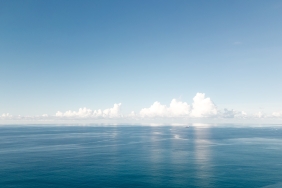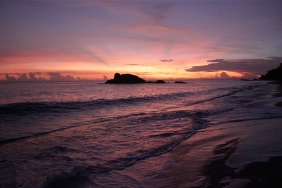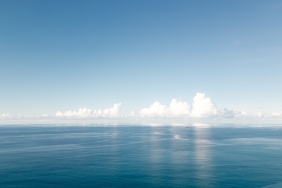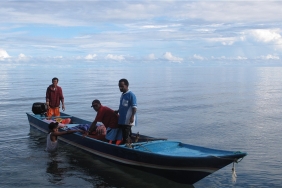THE NEED TO IMPROVE LOBSTER MANAGEMENT IN WAKATOBI
As one of the efforts in supporting the improvement of fisheries practices in Indonesia, WWF-Indonesia together with the Wakatobi Marine and Fisheries Service (DKP) conducted a survey related to the initial assessment of Marine Stewardship Council (MSC) certification products for lobster commodities, on May 25-26, 2015. The survey, which took place in South Mola Village on Wangi-wangi Island and Samabahari Village on Kadelupa Island, was conducted face-to-face with village heads and fishermen.
During the survey, it was found that not only the ecological condition of the waters, but also the practice of lobster fishing in Wakatobi waters is very different from that in Javanese waters. Wakatobi fishermen catch lobsters in an environmentally friendly way, relying only on their diving skills and using tools such as snares, flashlights, 'ceddo'or scrapers, and wooden swimming goggles typical of the Bajo Tribe. In addition to not producing marine debris (waste), the practice of fishing using this method is considered very selective because it does not cause bycatch (bycatch) like traps or bubu, which are often found in Javanese waters.
The most commonly caught lobster species in Wakatobi waters are batik lobster (Panulirus longipes) and bamboo lobster (Panulirus versicolor). However, sometimes fishermen also catch green sand lobster (Panulirus homarus) and pearl lobster (Panulirus ornatus). According to the fishermen met by the survey team, of the four types of lobster, batik lobster is the easiest to catch because it does not move much when it is about to be caught. This is in contrast to the bamboo lobster and pearl lobster, which are considered to be very active in their movements.
Despite being caught in an environmentally friendly way, many Wakatobi lobster fishermen have complained about the decline in their catch over the past few years, both in number and size. This is due to the influx of migrant fishermen from outside the region who also catch lobsters in Wakatobi waters in an environmentally unfriendly way, namely using compressors and bombs.
Seeing these conditions, the survey team believes that lobster management in Wakatobi is still quite weak, especially for data, regulations and implementation. As an initial recommendation, the survey team provided training on the implementation of Better Management Practices (BMP) for lobster fishers in Wakatobi, which is expected to influence the overall improvement of Wakatobi lobster management. The survey results and recommendations were welcomed by Wakatobi fishers. In addition to their awareness of the importance of maintaining the health of the marine ecosystem, the need to improve lobster management in Wakatobi will also affect the selling value of the catch product, considering that the lobster caught by Wakatobi fishermen is not only sold in local markets in Wakatobi and Kendari, but also exported to Hong Kong and Korea. Author: Windy Rizki - Capture Fisheries Officer, WWF-Indonesia





